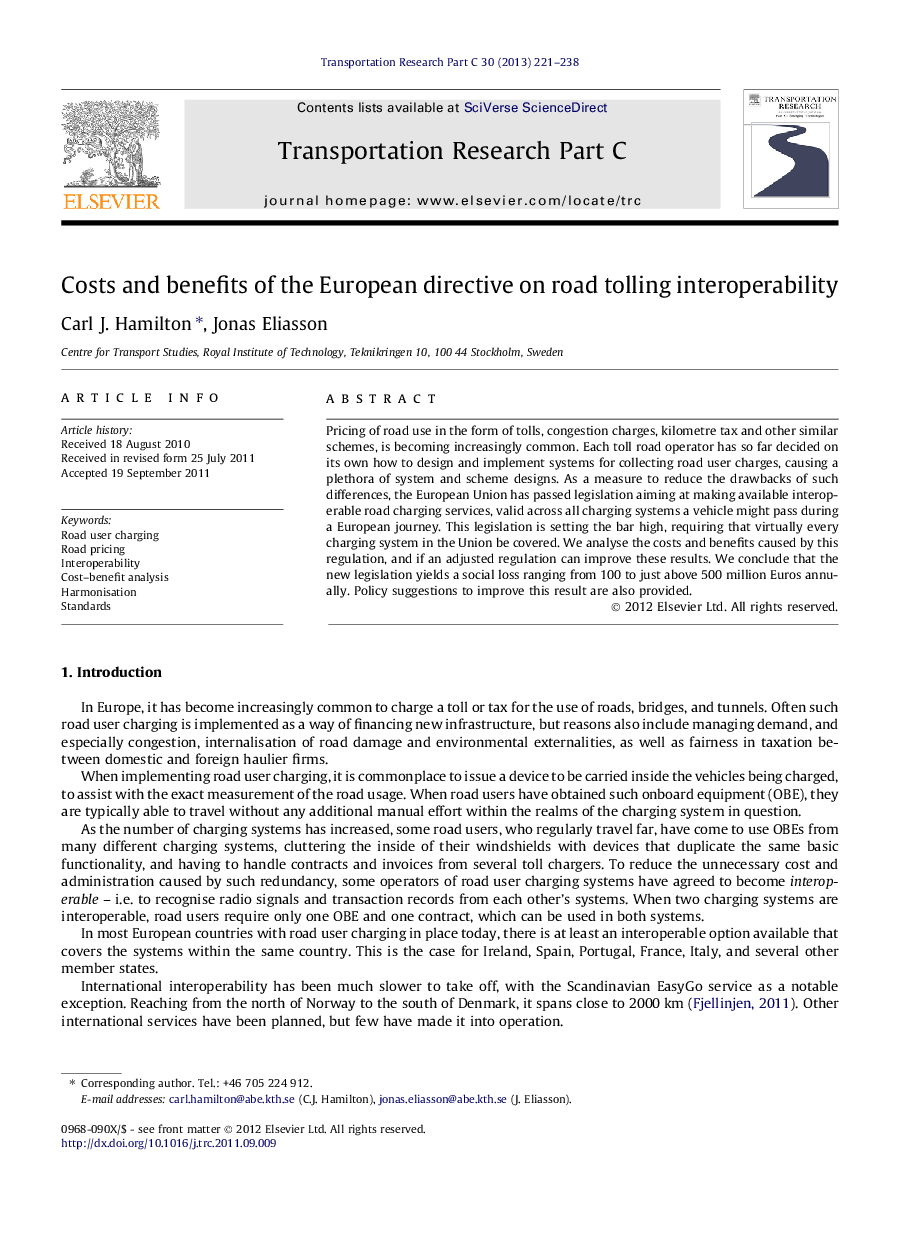| Article ID | Journal | Published Year | Pages | File Type |
|---|---|---|---|---|
| 526550 | Transportation Research Part C: Emerging Technologies | 2013 | 18 Pages |
Pricing of road use in the form of tolls, congestion charges, kilometre tax and other similar schemes, is becoming increasingly common. Each toll road operator has so far decided on its own how to design and implement systems for collecting road user charges, causing a plethora of system and scheme designs. As a measure to reduce the drawbacks of such differences, the European Union has passed legislation aiming at making available interoperable road charging services, valid across all charging systems a vehicle might pass during a European journey. This legislation is setting the bar high, requiring that virtually every charging system in the Union be covered. We analyse the costs and benefits caused by this regulation, and if an adjusted regulation can improve these results. We conclude that the new legislation yields a social loss ranging from 100 to just above 500 million Euros annually. Policy suggestions to improve this result are also provided.
• Interoperability can be achieved in different ways, by means of harmonisation or via adapters. • EU legislation on road tolling places high requirements on interoperability, mainly by adapters. • The costs of the legislation far outweigh the benefits.
